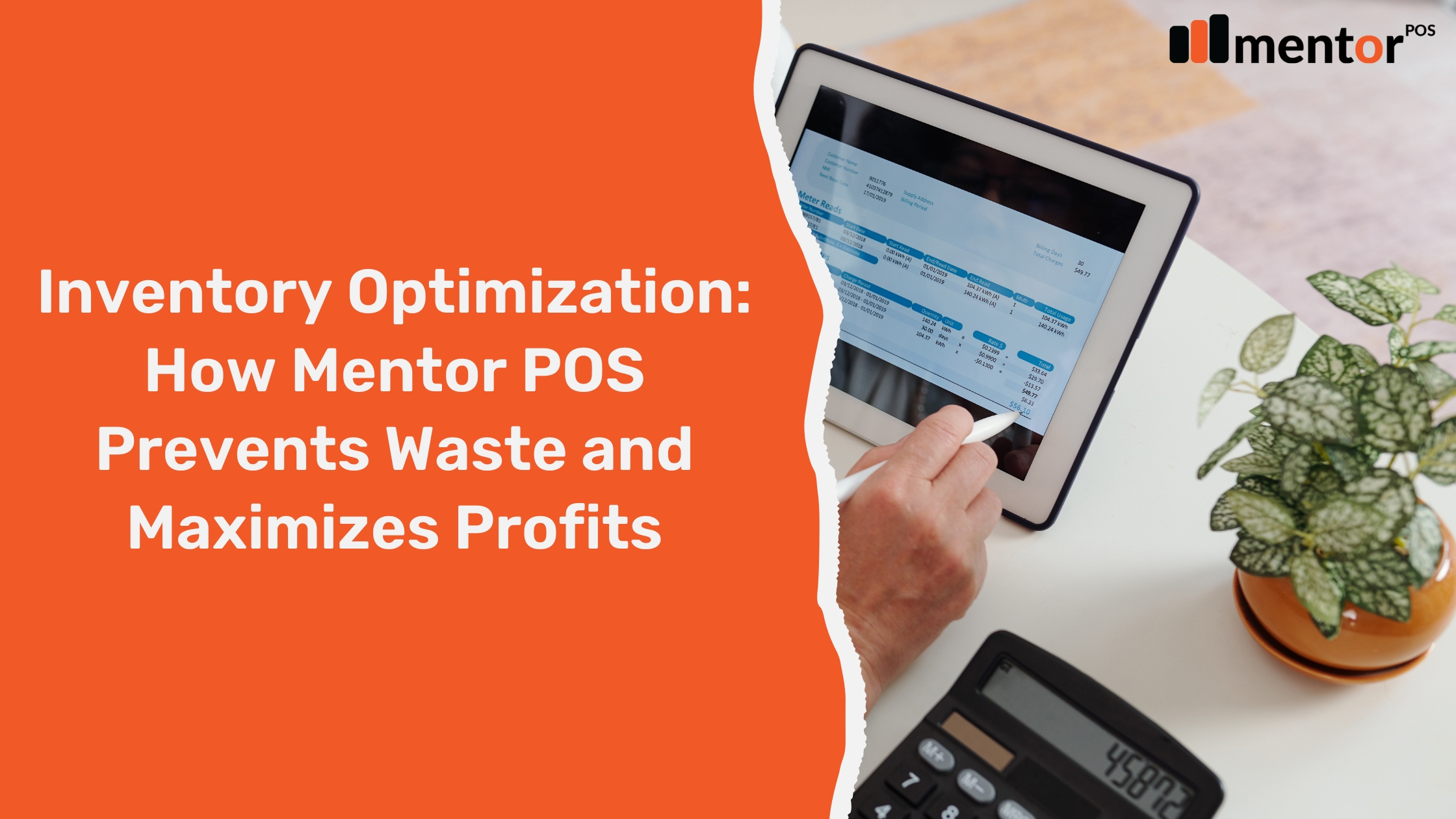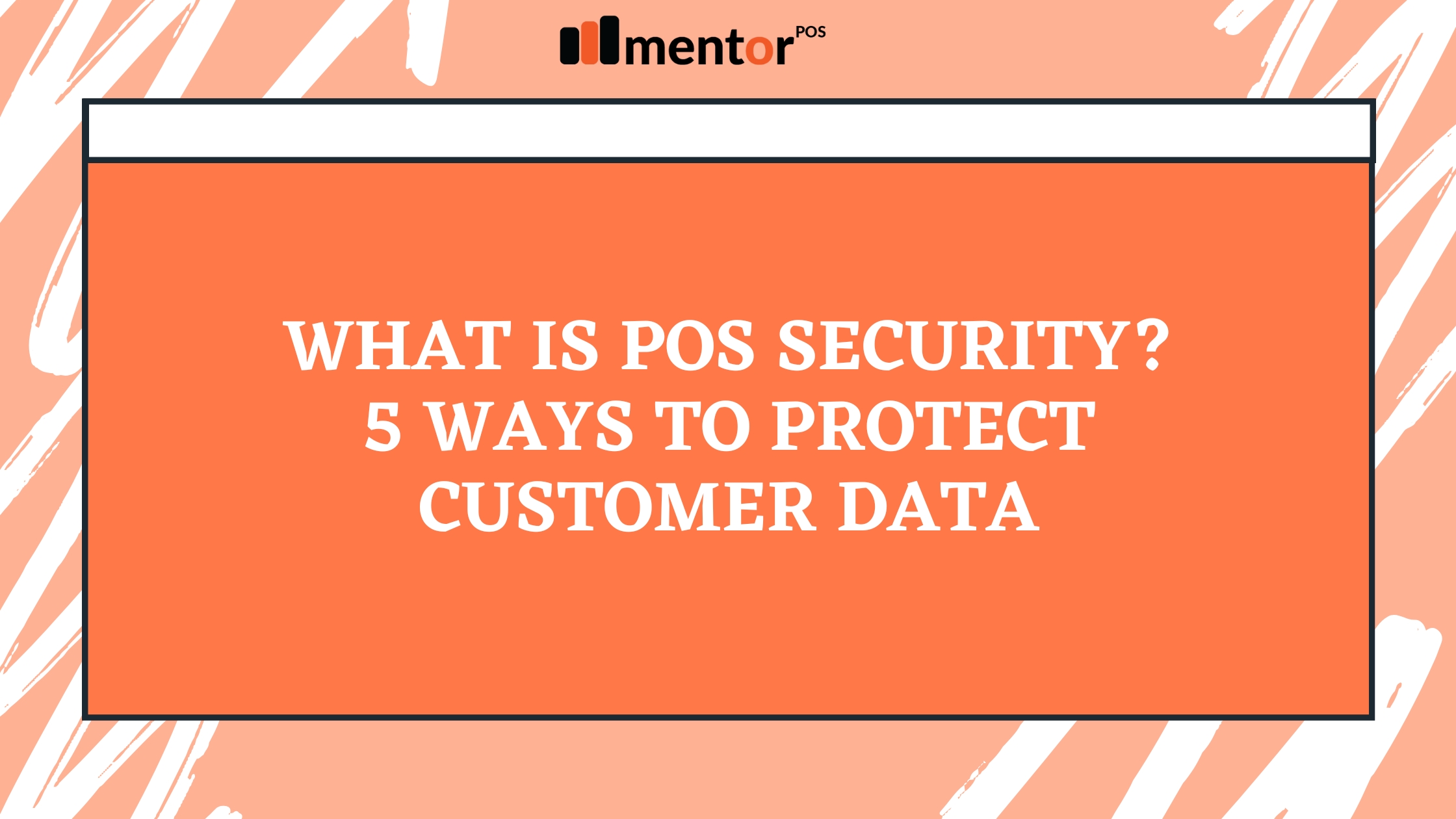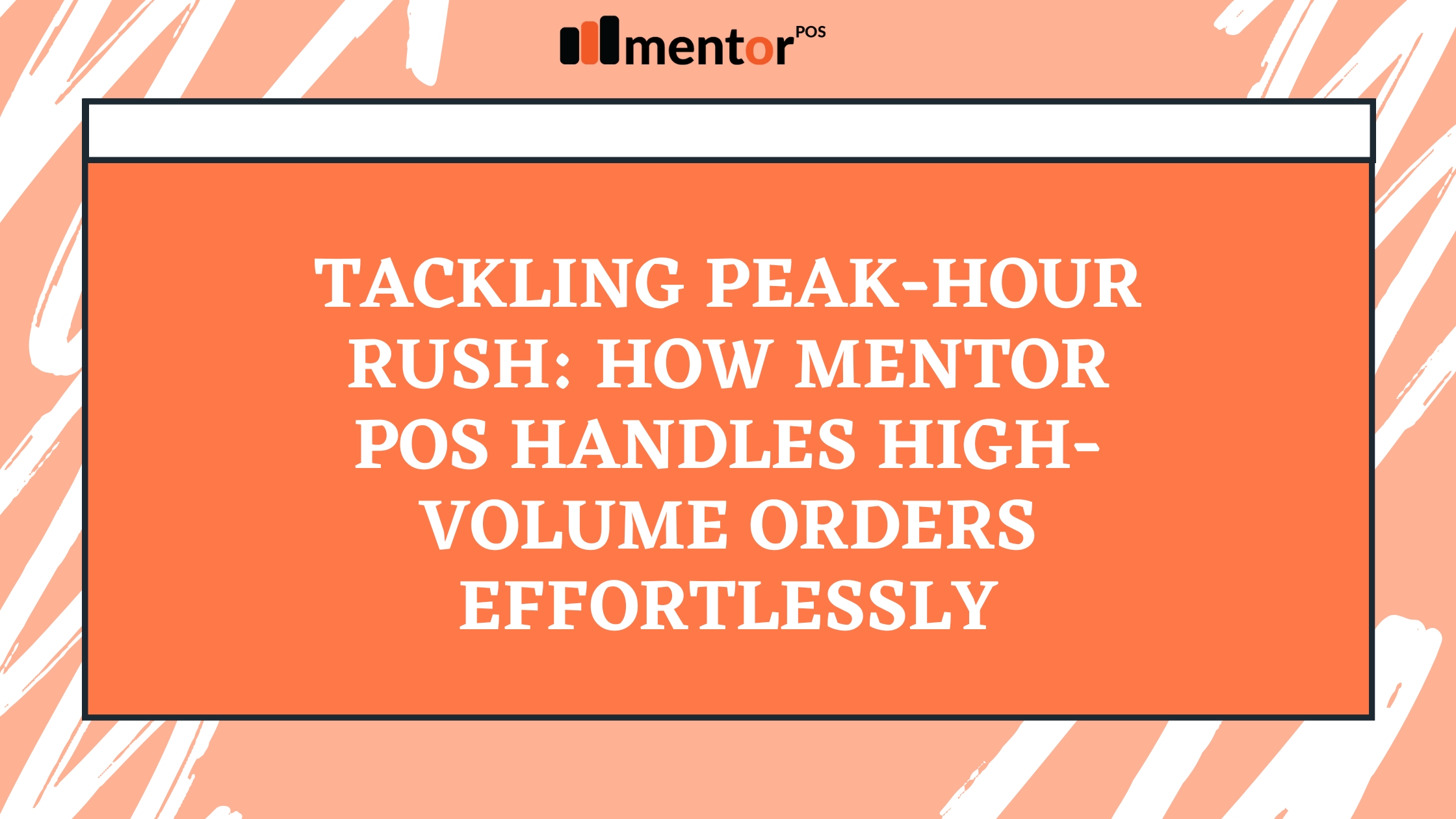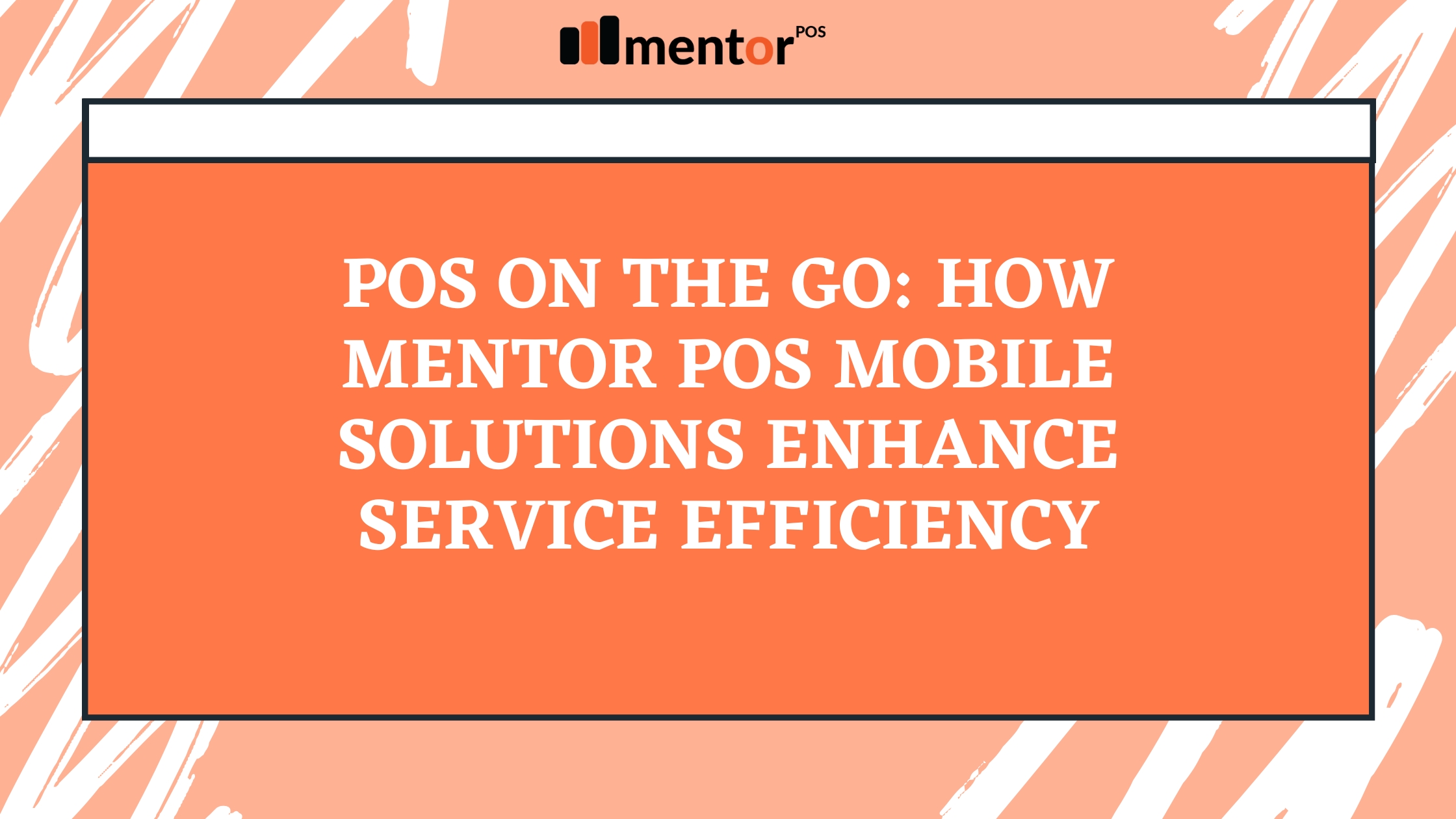In the fast-paced restaurant industry, managing inventory efficiently is crucial to maintaining profitability. Poor inventory control can lead to food waste, overstocking, and unexpected shortages, all of which hurt the bottom line. A robust Point of Sale (POS) system like Mentor POS provides comprehensive inventory management tools to help restaurants optimize stock, reduce waste, and maximize profits.
The Importance of Inventory Optimization
Inventory optimization ensures that restaurants maintain the right amount of stock to meet customer demand while minimizing waste and reducing holding costs. Without proper tracking, businesses often struggle with expired ingredients, excessive purchases, or stockouts that disrupt service. A well-integrated POS system automates inventory tracking, improves accuracy, and streamlines operations to prevent these issues.
Real-Time Inventory Tracking
One of the biggest advantages of Mentor POS is its real-time inventory tracking. With every sale, stock levels are automatically updated, giving restaurant managers a clear view of available ingredients and supplies. This feature prevents overstocking and ensures that critical ingredients are always on hand.
By tracking ingredient usage and setting reorder thresholds, restaurants can avoid running out of essential items. Additionally, alerts for low stock levels help managers restock at the right time, preventing last-minute rush orders and supply chain disruptions.
Reducing Food Waste with Smart Forecasting
Food waste is a major concern for restaurants, leading to unnecessary costs and environmental impact. Mentor POS helps businesses reduce waste by using smart forecasting tools. By analyzing sales trends, historical data, and seasonal demand, the system predicts future inventory needs with accuracy.
With this data, restaurant managers can adjust their purchasing strategy, reducing excess stock and preventing spoilage. By aligning inventory levels with actual demand, businesses can significantly cut down on food waste and improve overall efficiency.
Also Read: Mastering Multi-Outlet Management with Mentor POS
Automated Stock Replenishment
Mentor POS takes the hassle out of inventory management with its automated stock replenishment feature. The system monitors stock levels and automatically generates purchase orders when supplies run low. This automation minimizes manual errors, prevents over-purchasing, and ensures timely restocking.
By integrating with suppliers and vendors, Mentor POS also facilitates seamless order management, reducing delays and ensuring that restaurants receive fresh, high-quality ingredients when needed.
Cost Control and Profit Maximization
Effective inventory management directly impacts a restaurant’s profitability. Mentor POS provides detailed cost analysis reports, helping businesses identify high-cost ingredients, track price fluctuations, and analyze profit margins. With access to this data, restaurant owners can make informed decisions on menu pricing, supplier selection, and cost-saving strategies.
By minimizing waste and optimizing stock levels, restaurants can significantly reduce operational costs and maximize profit margins. The system also helps identify underperforming menu items that may be contributing to excess inventory, allowing businesses to refine their offerings for better profitability.
Multi-Outlet Inventory Management
For restaurant chains and multi-location businesses, managing inventory across different outlets can be challenging. Mentor POS simplifies this process with centralized inventory management, allowing restaurant owners to monitor stock levels across all locations from a single platform.
This feature enables inter-location transfers, ensuring that surplus stock from one branch can be redirected to another instead of going to waste. The system also standardizes inventory management processes across all outlets, ensuring consistency and reducing losses.
Waste Monitoring and Reporting
To further improve efficiency, Mentor POS includes waste monitoring tools that track discarded ingredients and unused stock. By identifying the sources of waste—whether due to overproduction, spoilage, or kitchen inefficiencies—restaurants can implement corrective measures and improve overall sustainability.
With detailed waste reports, businesses can analyze patterns and take proactive steps to reduce losses, such as adjusting portion sizes, modifying inventory purchases, or refining kitchen workflows.
Seamless Integration with Other Restaurant Operations
Inventory optimization doesn’t work in isolation—it must be integrated with other aspects of restaurant management. Mentor POS connects inventory data with sales, menu engineering, and financial reporting, providing a holistic view of restaurant performance.
By linking inventory usage with menu performance, businesses can adjust ingredient sourcing and pricing strategies to maximize profits. Additionally, integration with kitchen display systems (KDS) ensures that chefs are always aware of available stock, preventing delays and unnecessary waste.
Conclusion
Inventory management is a critical component of a successful restaurant business. Without proper tracking and optimization, restaurants risk financial losses due to waste, over-purchasing, and supply shortages. Mentor POS provides a comprehensive inventory optimization solution, ensuring real-time tracking, automated replenishment, waste reduction, and cost control.
By leveraging the powerful inventory management features of Mentor POS, restaurants can prevent waste, improve efficiency, and maximize profitability—turning inventory management from a challenge into a strategic advantage. Investing in a smart POS system is no longer a luxury but a necessity for modern restaurants looking to stay competitive and profitable.







